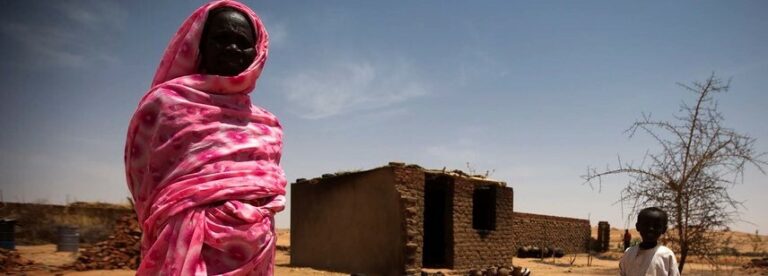The besieged city of El Fasher in Sudan’s North Darfur state is now completely encircled, leading to critical shortages of food and water and a surge in violence against civilians, the United Nations humanitarian office warned Wednesday.
Citing local sources, U.N. spokesman Stéphane Dujarric said the city is “effectively under siege from all directions.” Markets are largely empty, and prices for the few available goods have skyrocketed. Earthen barriers around the city are preventing the movement of people and humanitarian supplies, leaving residents trapped.
The situation deteriorated further this week with the closure of additional community kitchens, which had served as a last source of food for many families, according to local responders.
The humanitarian crisis extends beyond El Fasher. In the Blue Nile State, nearly 200 people were displaced from their homes in the Tadamon locality on Oct. 11 as fighting spread, Dujarric said. He described the overall situation in the country as “tense and fluid.”
Meanwhile, a cholera outbreak that began in July 2024 continues to claim lives across Sudan. The Ministry of Health has reported more than 3,400 deaths and nearly 122,000 suspected cases. The Darfur region is experiencing a rapid rise in infections, with the disease spreading through communities already devastated by conflict, hunger and the collapse of health services.
The U.N. stated that the cholera fatality rate is “well above emergency thresholds,” while funding for the response is running out.
The world body once again called on all warring parties to uphold their obligations under international humanitarian law, protect civilians and allow safe and unimpeded humanitarian access.
The $4.2 billion humanitarian appeal for Sudan this year is less than 27% funded, with only $1.1 billion received, according to the U.N. Office for the Coordination of Humanitarian Affairs. Dujarric urged donors and the international community to “urgently step up support for the people of Sudan.”
In a related development, U.N. peacekeeping chief Jean-Pierre Lacroix began a visit to South Sudan and the disputed Abyei region on Wednesday.
During his trip, which concludes Oct. 17, Lacroix is scheduled to meet with senior South Sudanese government officials, the leadership of the U.N. peacekeeping mission, and civil society groups. Discussions will focus on the implementation of the country’s peace process and the mission’s role in supporting it.
Lacroix is also expected to address the impact of a liquidity crisis on the U.N. Mission in South Sudan and its ability to implement its mandate. He will travel to Abyei to visit the U.N. Interim Security Force there.




